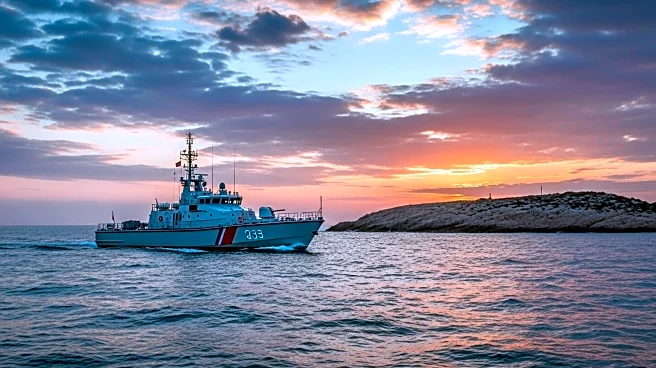What's Happening?
China's coast guard conducted a flag-raising ceremony near the Scarborough Shoal in the South China Sea to mark its National Day. This event follows China's recent declaration of the area as a national nature reserve, a move that has been met with strong opposition from the Philippines. The Scarborough Shoal, referred to by China as Huangyan Dao, has been a point of contention between the two nations, with China asserting its territorial claims despite a 2016 international arbitration ruling that invalidated these claims. The ceremony, broadcasted by state media, underscores China's continued efforts to assert sovereignty over the disputed waters.
Why It's Important?
The actions by China's coast guard at the Scarborough Shoal highlight ongoing geopolitical tensions in the South China Sea, a region critical for international shipping and rich in resources. China's establishment of a nature reserve is seen by experts as a strategic move to reinforce its territorial claims, rather than an environmental initiative. This development could further strain relations between China and the Philippines, potentially impacting regional stability and international maritime law. The situation also poses challenges for the United States and its allies, who have interests in maintaining freedom of navigation in these waters.
What's Next?
The Philippines is likely to continue diplomatic protests against China's actions, seeking support from international allies. The United States and other countries may increase their naval presence in the region to counterbalance China's assertiveness. Future developments could include increased military patrols or joint exercises by nations opposing China's territorial claims. The international community will be closely monitoring the situation, as any escalation could have significant implications for regional security and global trade routes.
Beyond the Headlines
China's actions at the Scarborough Shoal may set a precedent for similar moves in other disputed areas of the South China Sea. This could lead to a reevaluation of international maritime boundaries and influence future territorial negotiations. The situation also raises questions about the effectiveness of international arbitration in resolving such disputes, as well as the role of environmental designations in geopolitical strategies.










